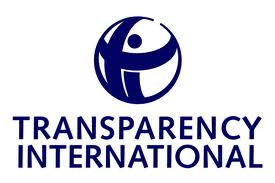 More than one person in two thinks corruption has worsened in the last two years, according to the world’s largest public opinion survey on corruption from Transparency International, but survey participants also firmly believe they can make a difference and have the will to take action against graft.
More than one person in two thinks corruption has worsened in the last two years, according to the world’s largest public opinion survey on corruption from Transparency International, but survey participants also firmly believe they can make a difference and have the will to take action against graft.
The Global Corruption Barometer 2013 is a survey of 114,000 people in 107 countries and it shows corruption is widespread. 27 per cent of respondents have paid a bribe when accessing public services and institutions in the last 12 months, revealing no improvement from previous surveys.
Still, nearly 9 out of 10 people surveyed said they would act against corruption and two-thirds of those who were asked to pay a bribe had refused, suggesting that governments, civil society and the business sector need to do more to engage people in thwarting corruption.
“Bribe paying levels remain very high worldwide, but people believe they have the power to stop corruption and the number of those willing to combat the abuse of power, secret dealings and bribery is significant, “ said Huguette Labelle, the Chair of Transparency International.
The Global Corruption Barometer 2013 also found that in too many countries the institutions people rely on to fight corruption and other crime are themselves not trusted. 36 countries view police as the most corrupt, and in those countries an average of 53 per cent of people had been asked to pay a bribe to the police. 20 countries view the judiciary as the most corrupt, and in those countries an average of 30 per cent of the people who had come in contact with the judicial systems had been asked to pay a bribe.
“Governments need to take this cry against corruption from their citizenry seriously and respond with concrete action to elevate transparency and accountability,” Labelle said. “Strong leadership is needed from the G20 governments in particular. In the 17 countries surveyed in the G20, 59 per cent of respondents said their government is not doing a good job at fighting corruption.”
Politicians themselves have much to do to regain trust. The Global Corruption Barometer 2013 shows a crisis of trust in politics and real concern about the capacity of those institutions responsible for bringing criminals to justice. In 51 countries around the world political parties are seen as the most corrupt institution. 55 per cent of respondents think government is run by special interests.
Politicians can lead by example by publishing asset declarations for themselves and their immediate family. Political parties and individual candidates, meanwhile, must disclose where they get their money from to make clear who funds them and to reveal potential conflicts of interest.
Around the world, people’s appraisal of their leaders’ efforts to stop corruption is worse than before the financial crisis began in 2008, when 31 per cent said their government’s efforts to fight corruption were effective. This year it fell to 22 per cent.
“Governments need to make sure that there are strong, independent and well-resourced institutions to prevent and redress corruption. Too many people are harmed when these core institutions and basic services are undermined by the scourge of corruption,” Labelle added.
